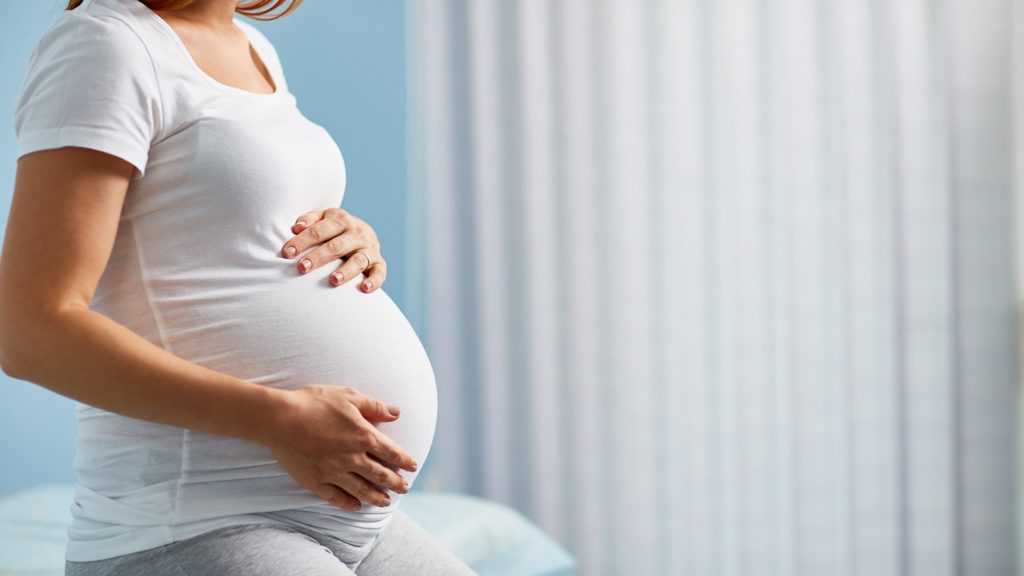Pregnancy week by week Print

Iron deficiency anemia during pregnancy: Prevention tips
Iron deficiency anemia during pregnancy can make you feel weak and tired. Know the risk factors, symptoms and what you can do to avoid it.
If you’re pregnant, you’re at an increased risk of iron deficiency anemia, a condition in which you don’t have enough healthy red blood cells to carry adequate oxygen to your body’s tissues. Find out why anemia during pregnancy occurs and what you can do about it.
What causes iron deficiency anemia during pregnancy?
Your body uses iron to make hemoglobin, a protein in the red blood cells that carries oxygen to your tissues. During pregnancy, you need double the amount of iron that nonpregnant women need. Your body needs this iron to make more blood to supply oxygen to your baby. If you don’t have enough iron stores or get enough iron during pregnancy, you could develop iron deficiency anemia.
How does iron deficiency anemia during pregnancy affect the baby?
Severe anemia during pregnancy increases your risk of premature birth, having a low birth weight baby and postpartum depression. Some studies also show an increased risk of infant death immediately before or after birth.
What are the risk factors for iron deficiency anemia during pregnancy?
You are at increased risk of developing anemia during pregnancy if you:
- Have two closely spaced pregnancies
- Are pregnant with more than one baby
- Are vomiting frequently due to morning sickness
- Don’t consume enough iron
- Have a heavy pre-pregnancy menstrual flow
- Have a history of anemia before your pregnancy
What are the symptoms of iron deficiency anemia during pregnancy?
Anemia signs and symptoms include:
- Fatigue
- Weakness
- Pale or yellowish skin
- Irregular heartbeats
- Shortness of breath
- Dizziness or lightheadedness
- Chest pain
- Cold hands and feet
- Headache
Keep in mind, however, that symptoms of anemia are often similar to general pregnancy symptoms. Regardless of whether or not you have symptoms, you’ll have blood tests to screen for anemia during pregnancy. If you’re concerned about your level of fatigue or any other symptoms, talk to your health care provider.
How can iron deficiency anemia during pregnancy be prevented and treated?
Prenatal vitamins typically contain iron. Taking a prenatal vitamin that contains iron can help prevent and treat iron deficiency anemia during pregnancy. In some cases, your health care provider might recommend a separate iron supplement. During pregnancy, you need 27 milligrams of iron a day.
Good nutrition also can prevent iron deficiency anemia during pregnancy. Dietary sources of iron include lean red meat, poultry and fish. Other options include iron-fortified breakfast cereals, prune juice, dried beans and peas.
The iron from animal products, such as meat, is most easily absorbed. To enhance the absorption of iron from plant sources and supplements, pair them with a food or drink high in vitamin C — such as orange juice, tomato juice or strawberries. If you take iron supplements with orange juice, avoid the calcium-fortified variety. Although calcium is an essential nutrient during pregnancy, calcium can decrease iron absorption.
How is iron deficiency anemia during pregnancy treated?
If you are taking a prenatal vitamin that contains iron and you are anemic, your health care provider might recommend testing to determine other possible causes. In some cases, you might need to see a doctor who specializes in treating blood disorders (hematologist). If the cause is iron deficiency, additional supplemental iron might be suggested. If you have a history of gastric bypass or small bowel surgery or are unable to tolerate oral iron, you might need intravenous iron administration.
